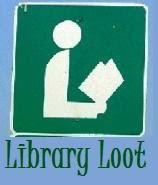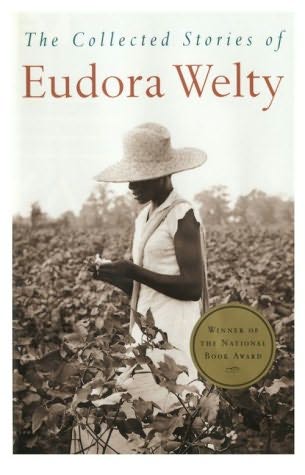Send them to school with these traditional one-sided Valentines
by modern-day children's book illustrators!
My Mission...Not Impossible...Make Mississippi Read!
Tags: alamw09
 It was a sunny day and she was a sunny little girl. Not any older than six, possibly seven, but she had a slender frame and looked like a four-year-old. In her yellow dress, yellow socks, and white Mary Janes, she looked like the walking sun which spit out flames at intervals. One could hear her two blocks away as she hawked her wares, “Lemonaaaade! Lemonaaaade, fifty cents!”
It was a sunny day and she was a sunny little girl. Not any older than six, possibly seven, but she had a slender frame and looked like a four-year-old. In her yellow dress, yellow socks, and white Mary Janes, she looked like the walking sun which spit out flames at intervals. One could hear her two blocks away as she hawked her wares, “Lemonaaaade! Lemonaaaade, fifty cents!”
I watched her before approaching. I wanted to see how Miss Sunshine handled herself amongst customers. The first was a neighborly lady using a lace umbrella to hide from the bright day. She took her time drinking the sweet concoction then placed her 50 cents in the Styrofoam cup sitting precariously on the stand. With a point towards the aunt working in the convenience store, she slipped a twenty into the cup before the girl could turn back around.
As another man tried to glide by on the sidewalk unnoticed, the little girl craned her head around the older woman and yelled, “Lemonaaaade! Lemonaaaade, fifty cents!” He stopped in his tracks and said, “Not now, Annie. I’m in a little bit of a hurry. I’ll come back in an hour.” He took four paces past the stand then turned around and jogged back slowing down to drop some coins in the cup, and then he was off.
I figured it was my turn to meet little Annie as the older woman hobbled down the road. She saw me crossing the street, and before I could reach her the unmistakable Southern twang, “Lemonaaaade! Lemonaaaade, fifty cents!” filled the air. Good thing I faced her head-on. A sideways approach might have set my ear throbbing.
She was a pleasant little thing by the name of Annie. As she plied me with drink, she asked question after question. How old are you? How tall are you? What size shoes do you wear? I could tell she had many repeat customers by her easy manner. It was as she stood up to show me her height that I noticed the fresh scar on her chest. Then she says, “If I get a new heart, my doctor says I might grow some more.” I too gave her the initial 50 cents, but left 20 dollars and 50 cents lighter.
I turned around to wave at her when I reached the other side of the street. She didn’t notice. As I walked away a rogue wind graced her stand and sent the Styrofoam cup soaring. Paper money swirled loose in the street. The backfire from a bread truck coming around the corner was too close for comfort when I realized what was happening.
You will love Christian author, Charles Martin’s, very first book, When Crickets Cry.
Note: These are my words written as the character Mr. Reese.
at
12:04 PM
16
valued comments
![]()
Tags: Booktalk
Tags: Art as Story, Obit
Tags: Art as Story, Obit
 I have a new favorite author, John Green. I haven’t even finished the book and am in love with him. The book is Looking for Alaska and in 2006 it won the edgy Printz Award.
I have a new favorite author, John Green. I haven’t even finished the book and am in love with him. The book is Looking for Alaska and in 2006 it won the edgy Printz Award.
Oh, you have not heard of this award? Do not worry. It is new. As part of the American Library Association’s plethora of awards the website states, “The Michael L. Printz Award is an award for a book that exemplifies literary excellence in young adult literature. It is named for a Topeka, Kansas school librarian who was a long-time active member of the Young Adult Library Services Association.”
Most Printz award books are written in a style called realistic fiction. This genre of fiction exposes readers to adult situations such as drinking, drugs, and sex allowing them to live vicariously through the main young-adult characters. Not as a cautionary tale per se, for these characters can make really bad decisions and get away with them, but as a rich telling of today’s society mirrored in books.
In Looking for Alaska, Miles Halter, quickly nicknamed Pudge by his new roommate because he is so skinny, is attending the Culver Creek Preparatory School in Fair Hope, Alabama. This is his first year and roommate, Chip “Colonel” Martin, is filling him in on the goings and comings of his new school. Pudge learns quickly the kids are broken into two groups: the Weekday Warriors who have money and spend their weekends at home and “the wrong crowd.” As a middle class student who will be spending all his semesters on campus, he correctly deducts he will be a member of the wrong crowd.
Entering “The Creek” is all Pudge’s idea. His father and his father’s father and his grandfather’s father all attended, but that isn’t his reason. He is going to this school—miles away from his Florida home—in order to seek the “Great Perhaps.”
See, Pudge has a quirky talent. He memorizes the dying words of famous people. His favorite, Francois Rabelais, gasped, “I go to seek a Great Perhaps.” He figures he will seek while alive.
Looking for Alaska is broken into two parts: before and after. In the before section the chapters are titled in countdown fashion like “one hundred one days before.” I hate to be vague, but there is a huge possibility I will give away the ending if not. I will tell you that Alaska is a knock-out female character who causes the before and after.
Another point of view from Tricia at Library Queue.
at
12:39 PM
17
valued comments
![]()
Tags: Booktalk

As you can imagine, I use the libraries in my life often. When I found Eva over at A Striped Chair was hosting Library Loot days, I smacked my head! Why didn't I think of that!
Two of the books belong to NWCC and two belong to First Regional Library. All are collections of Eudora Welty's photographs. Miss Welty worked as a copy writer for the Works Progress Administration (WPA) during the depression. When out scouting for stories she took a little free time to take pictures of her home state of Mississippi. These photos which she referred to as snapshots were taken on a Kodak model "one step more advance than the Brownie." A company in Jackson developed the pics and Miss Welty enlarged the prints at her home. All paid out of her pocket, the WPA did not hire her as a photographer as some books and internet sources falsely report.
Left to Right: Photographs, One Time, One Place, Welty (catalog), Country Churchyards.
 As readers blow out Richard Wright’s centennial candles, another cake awaits decorating. Eudora Welty lovers are planning celebrations statewide since she was born April 13, 1909 in Jackson, Mississippi. Of course, Welty’s home for 76 years will be the centerpiece for activities with staff offering free tours on her birthday.
As readers blow out Richard Wright’s centennial candles, another cake awaits decorating. Eudora Welty lovers are planning celebrations statewide since she was born April 13, 1909 in Jackson, Mississippi. Of course, Welty’s home for 76 years will be the centerpiece for activities with staff offering free tours on her birthday.
If one cannot attend the festivities in Jackson, the “Mississippi Reads” program encourages citizens to read her Collected Stories. As the title infers, the book is a collection of Welty’s short stories and essays which provide an easy avenue for studying her works by digesting a little at a time.
Since Thanksgiving, I have read numerous titles in the collection. My favorite is A Worn Path. First published in The Atlantic Monthly in 1941, it received second place honors during the O. Henry Awards that year. I deem it first place.
A Worn Path describes an elderly woman’s journey to town in order to obtain medicine for her grandson. It is early morning and the frost covers the earth as she begins her walk somewhere on the Natchez Trail into Natchez.
Her name is Phoenix Jackson, and she is ill prepared for the journey. Although the sun shines bright, it is bitterly cold, and for warmth she wears a long dress, a red rag on her head, a thin sack apron, and unlaced shoes. Her cane, made from a tatter umbrella, rights her slender body as best it can, but still she stumbles on the uneven path.
Along the way she encounters hurdles. A ghost in the field becomes a scarecrow as her eyes and mind slowly focus. A black dog comes at her, and she backs it off with her cane only to tumble into a ravine from which she cannot get out. A hunter extracts her from the gully and tries to talk her into returning home.
Phoenix is a metaphor for life as she encounters obstacles on her journey but must press on. This rich story took shape after Welty, looking outside her train window, saw a black woman crossing an open field. Why was she crossing the field? Where was she going? It is amazing when one realizes a character as diverse as Phoenix was developed solely from a passing glance.
Consider this the year you take up the Eudora Welty banner. Read her stories, read her books, and grab another Mississippian for discussion.
Errata: This article takes on a whole new spin now that I have an interview with Miss Welty indicating she was out with artist friends when she saw the woman cross on the horizon. I am so sorry. I thought I read somewhere that it was while she was on a train!
at
12:25 PM
31
valued comments
![]()
Tags: Booktalk
 As most of you know Dewey passed away at the end of November. In honor of her memory, I joined the Dewey's Books Reading Challenge. There are two separate blogs: one for news and one for reviews. The deal is to read and review books that Dewey did in her bloggie lifetime. I'll be reading as many YA books from my local library, and donating ones they do not own. Dewey will live on in these books for others.
As most of you know Dewey passed away at the end of November. In honor of her memory, I joined the Dewey's Books Reading Challenge. There are two separate blogs: one for news and one for reviews. The deal is to read and review books that Dewey did in her bloggie lifetime. I'll be reading as many YA books from my local library, and donating ones they do not own. Dewey will live on in these books for others.
Tags: 4Dewey
